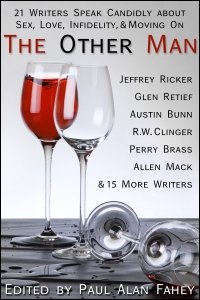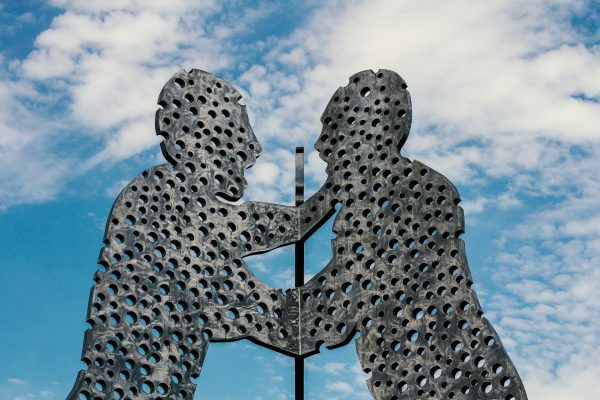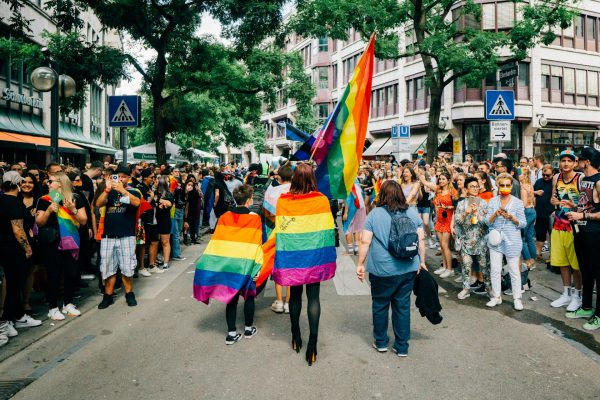Have you been the other man? Has the other man ruined your relationship? Was the other man married? Were you cheating on your partner with the other man? Did it last with the other man?
These are some of the questions explored by the writers in this candid and often heart-wrenching book written by 21 established LGBTQIA+ writers. They are all stories about gay men and their experience of the other man.
In his introduction to this collection of stories Paul Alan Fahey writes:
“He is a trespasser, an interloper, the peckerwood who gets between you and your lover, partner or mate. He’s an accident waiting to happen: the skateboarder ‘round the bend, the smiling barista with the extra hot mocha, or the computer geek eager to retool your mate’s hard drive. He’s a relationship gatecrasher bound by no rules and no sense of fair play.”
The Other Man is a challenging read and not because the stories are overly verbose or written in a high literary style. It is challenging because of the simple honesty with which these LGBTQIA+ writers tell their stories. These are not fictional stories but true stories about gay men and their experiences with the other man. Every story has passion, a kind of impulsive or chemical attraction that brings these men together. There is a prevailing sense of need that imbues each page of the book. It often starts with sex. Sex is a catalyst for further complications. The affairs start as sex or the fulfillment of some deep seeded desire and then evolve into more complicated and emotionally dense scenarios.
Longing also infuses the stories. A deep yearning for someone or something that will fix the boredom or frustration of daily life becomes almost tangible in these diverse tales. Each writer seems to have taken to heart Socrates teaching that, “The unexamined life is not worth living.” They ruthlessly look at themselves and the exciting, awkward and often painful time in their life, in which their story occurs. The honesty with which these writers look at their own foibles, neurosis, and obsessions creates a mood in the book of self-examination. It’s impossible not to identify with many of the situations in which these men– in search of love, companionship, and sex–find themselves.
The Other Man is being adapted into a stage play. The following two stories are included in the stage adaptation.
Perry Brass’s story, A Pitiless Love, is unique in the book in that Perry has a relationship with the other man and then he becomes the other man. Perry meets a fan of his writing; he calls the man, Morris. Morris is a lawyer, formerly married and newly discovering his attraction to men. Perry is in a twenty-year relationship with Steve. We don’t hear a lot about Steve in the story but it’s clear that Perry and Steve have an understanding about such dalliances. Perry is attracted to Morris and one thing leads to another. Perry develops “feelings” for Morris, who in turn has met a man named, Joshua. Joshua and Morris are into S&M. Morris would like a parallel relationship with Perry but he doesn’t want to cheat on Joshua. Morris wants to make the relationship with Joshua work, so he casually casts Perry aside. It’s a complicated situation. Clearly, Perry is hurt and struggling with rejection. He waivers back and forth about Morris until finally making a choice. The story is profound on many levels especially Brass’ willingness to look clearly at himself, his ego, and his motivations.
Felice Picano’s story, The Child, is heartbreaking in both its warmth and sophistication. Felice and his partner Bob are the epitomai of a committed couple in an open relationship. It’s most striking that both men, as portrayed in Picano’s story, are secure individually and in their relationship with one another. Consequently, when Bob becomes interested in a younger man aka The Child, Felice is not threatened. Bob’s fantasy with this younger man eventually peters out but Bob remains the man’s sponsor. The child is in the world of bodybuilding and Bob helps him with his competitions. Felice even joins in and accompanies Bob on his trips to help the child prepare for competition. Felice provides the narcissistic child with sound relationship advice when he tells him, “The way to man’s heart is through his mind.” Bob eventually succumbs to HIV and on his deathbed makes a few requests of Felice. “Look after the Child,” Bob asks Felice.
The humanity with which Picano exposes this chapter in his life is deeply moving. It also spotlights the willingness of many older gay men who have, as Barry Manilow sang, “…made it through the rain,” to help others “make it through the rain.” Certainly, we can say that the younger generation is selfish, self-absorbed, insensitive, and arrogant. Weren’t we all at one time? If it weren’t for that one special man or woman who came into our lives and kept loving us until we learned to love ourselves, then most likely we’d still be getting soaked by the downpour.
The Other Man, from a personal perspective, was a cathartic read, in all the right ways. I found myself truly identifying with people, places, things, and situations that have made up the cornucopia of my own gay life, loves, and pursuit of happiness. Ultimately, these writers and their stories will make you feel less alone and more forgiving and understanding toward yourself and the other man.
The Other Man, edited by Paul Alan Fahey, is published by JMS Books LLC available on the JMS books website and through Amazon.com.
Felice Picano is the author of more than thirty books of poetry, fiction, memoirs, nonfiction, and plays. His first novel was a finalist for the PEN/Hemingway Award. Since then he’s been nominated for and/or won dozens of literary awards. Picano teaches at Antioch College, Los Angeles.
Perry Brass is the author of 19 books, including the bestselling, Ippy Gold Medal Award-winning guide The Manly Art of Seduction: How to Meet, Talk to, and Become Intimate With Anyone.






